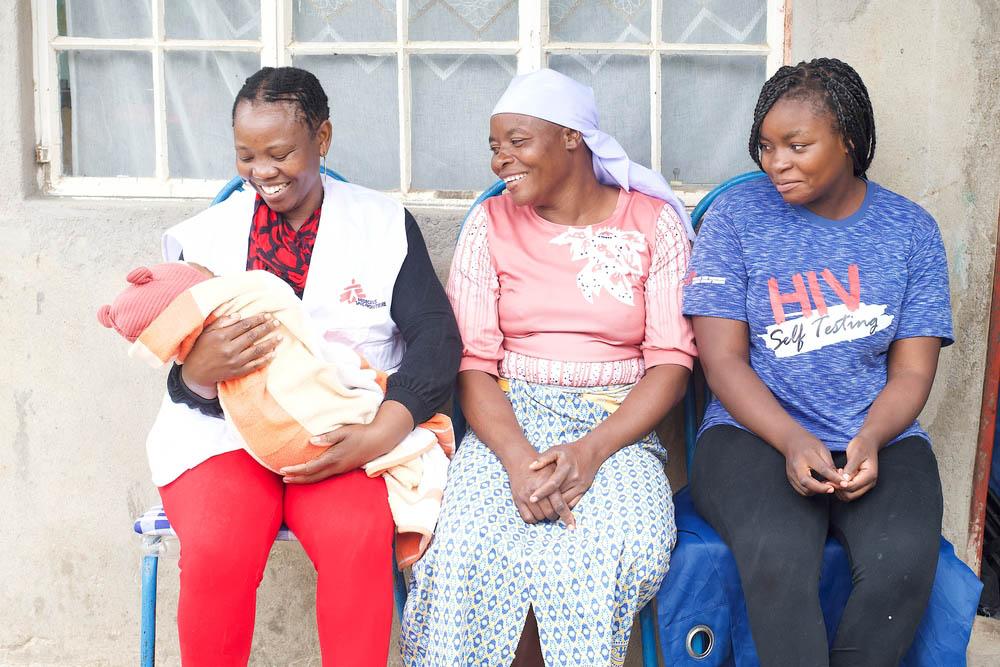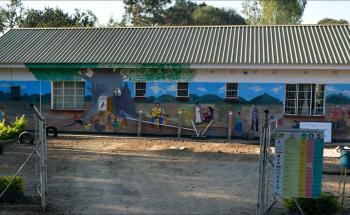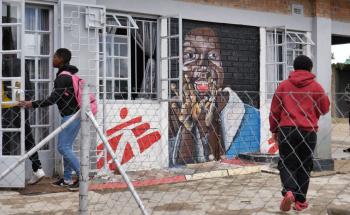An initiative developed by Doctors Without Borders (MSF) in Mbare and Epworth, and taken up by the community, is helping adolescent mothers to feel empowered about their sexual health and regain their well-being.
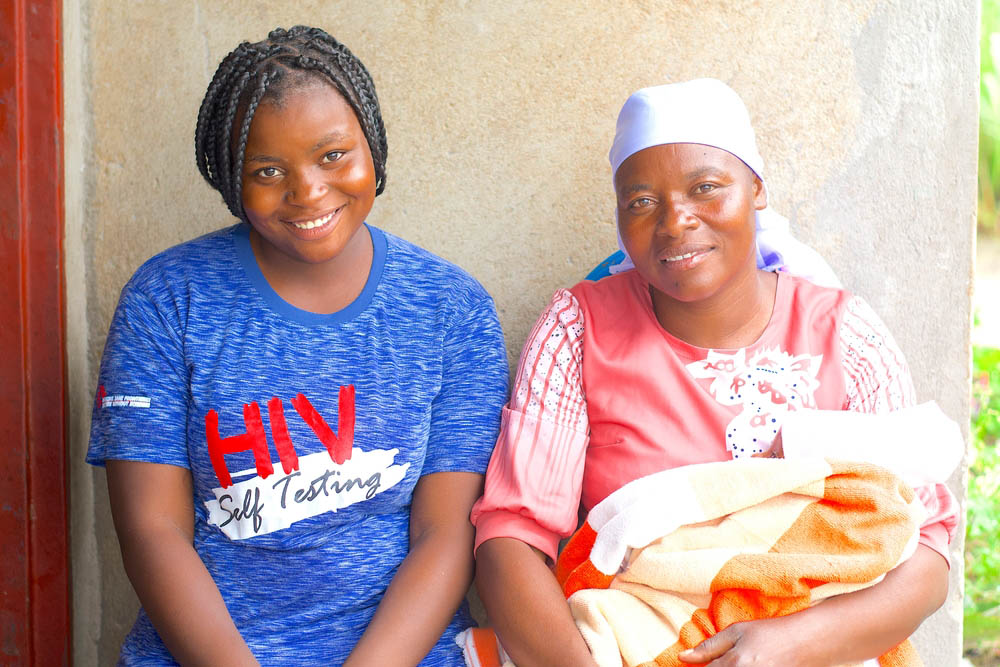
“It is not discussed openly.”
Mbare and Epworth are two densely populated townships in Zimbabwe. In the last few years, during the COVID-19 pandemic, both communities have been grappling with a shift experienced across Zimbabwe: an increase in pregnancies among its young people.
Zimbabwe went into a lockdown in March 2020, closing schools almost completely for six months. The pandemic also saw poverty levels increase. Cut off from day-to-day learning and bearing the pressure of families struggling to make ends meet, many teenage girls became increasingly vulnerable to sexual and gender-based violence, child marriages and reduced access to healthcare.
These pandemic-era challenges came on top of the barriers already faced by girls in the community due to cultural beliefs, taboos and myths around sexual health, some common in Mbare, others familiar in many places around the world.
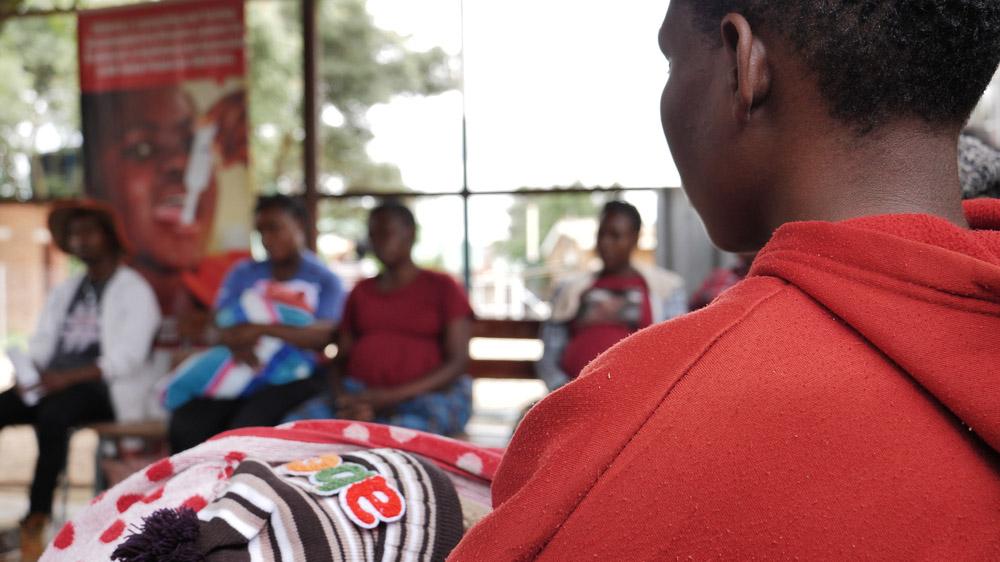
In our community, it is taboo for a girl of school-going age to fall pregnant, it is humiliating and shameful to the girl’s family. I did not know what to do or who to turn to.Marvellous Nzenza, 18-year old peer educator and teen Mum in Zimbabwe
“Issues to do with sexual and reproductive health (SRH) or sexuality are not discussed openly in the community space, especially when we look at the relationships of parents and their children,” says MSF social worker in Mbare, Relative Chitungo. “The moment an adolescent tries to approach a parent and ask [about these issues], they are pointed fingers at, or blamed for being, say, mischievous.”
“The fear of being judged also limits most adolescents from seeking or accessing appropriate information that is very crucial in terms of them making health choices.”
Since adolescents typically rely on their parents for financial support, and most SRH services are relatively expensive, it can be incredibly difficult for them to keep a trip to an SRH clinic private.
“There are reasons why many girls are not going to health centres to collect protection (condoms) or contraceptives,” says Marvellous. “This is because our communities, and even our own parents, would demand the reason you were at a health clinic.”
“Those who discuss condom use or the benefits of using it are labelled as having loose morals or being prostitutes. There are [also] myths that if one uses contraceptives before having babies, they will never conceive.”
Entering the MSF Teen Mums’ Club
For Marvellous, her first contact with Sexual Reproductive Health (SRH) services came in the form of a leaflet from the Doctors Without Borders (MSF) Mbare clinic.
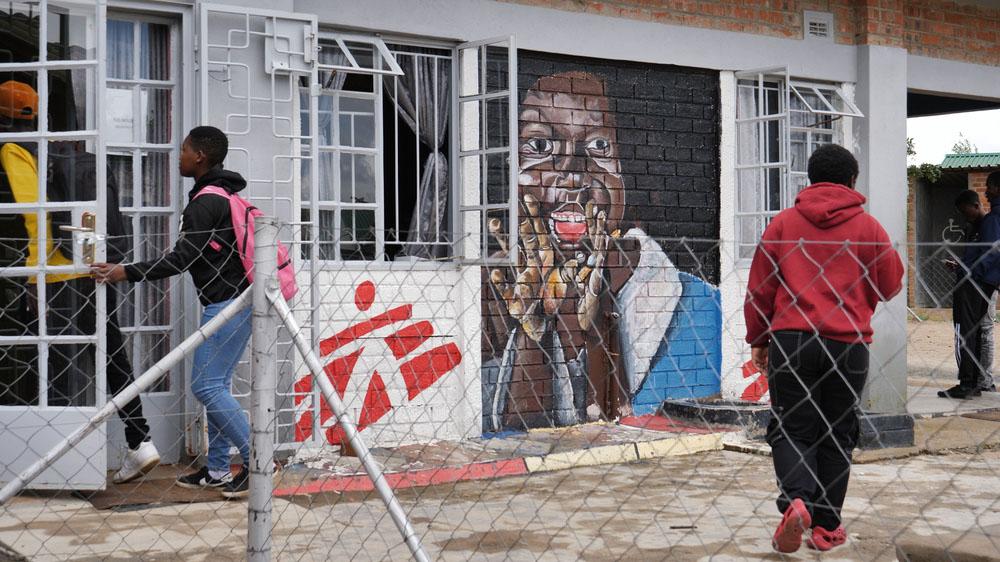
MSF held an outreach programme in our community, and they handed me a flyer as they told me how MSF could assist young girls in my situation.Marvellous Nzenza, 18-year old peer educator and teen Mum in Zimbabwe
"They referred me to Edith clinic in Mbare. I was welcomed by aunt Relative from MSF. It was here that I narrated my story before she took me through counselling. The following day I went back and joined the Teen Mums’ Club. Realising there were more girls in my situation gave me a sense of relief."
“[Marvellous] explained to me what the Teen Mums’ Club is, how good it is for her, how well she was welcomed and that she was going to attend that club,” says Jacqueline. “She told me that MSF was going to register her pregnancy at a hospital, buy baby clothes and monitor her health during pregnancy. I was happy to hear that.”
Marvellous chose to be trained on how to make dishwashing liquid, and her mum supported her with the production and selling. “We would mix the ingredients together, advising each other on the correct measurements,” says Jacqueline. “The dishwash project uplifted my family, and we sold a lot during Marvellous’ pregnancy. We did a lot with the proceeds.”
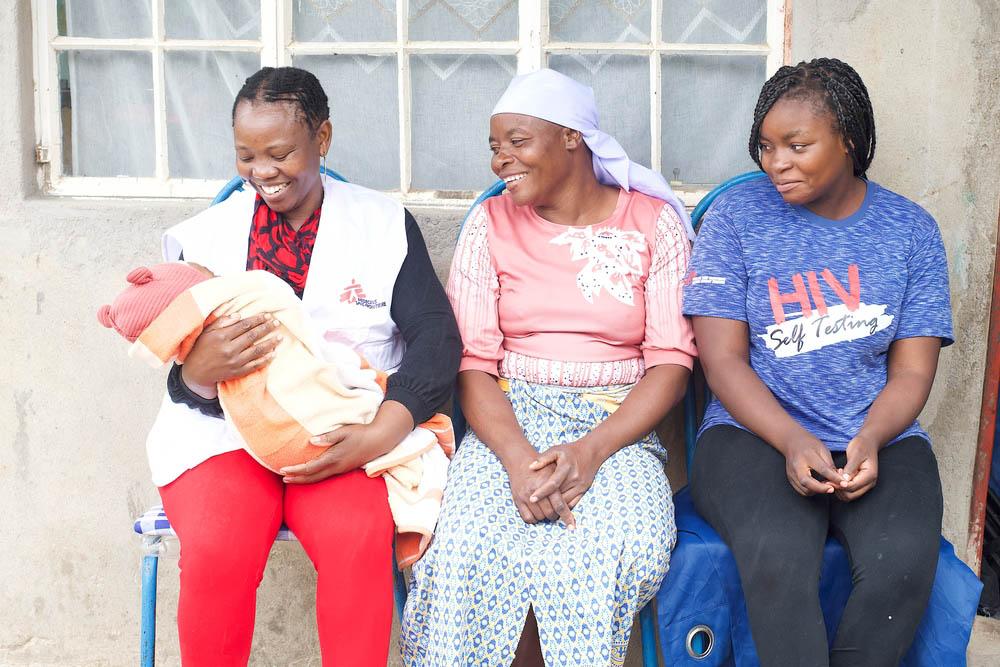
Listening to the voices of young people
Key to the project’s success is its ‘teen mum champions’: girls who have participated in the club themselves and are interested in becoming peer educators. They are trained in health promotion, to reach other girls facing similar challenges and lead their peers.
Marvellous was employed by MSF as a peer educator after she began voluntarily visiting girls in her community to pass on the information she had learned. Marvellous also helps provide sexual health education, information about contraceptives and referrals to the clinic for antenatal care.
The assistance I got from MSF inspired me to give back to my community, realising that I was not the only one with the same problem. Now as a peer educator, I am encouraging teen mothers in my community to register their pregnancies in order to deliver in safe spacesMarvellous Nzenza, 18-year old peer educator and teen Mum in Zimbabwe
MSF also runs sexual health education sessions with the caregivers of the participants. The project has had success in engaging fathers of the teen mums, and encourages the girls to bring their partners along, too. Parents have come on board with the Teen Mums’ Club to spread the message to the community, to say, ‘let’s be there for our children’.
Jacqueline is among them. “I would like to encourage parents to embrace their daughters when faced with such challenges. I accepted this predicament, and I am grateful to this organisation MSF because I could see that my daughter’s spirit had been uplifted after a long time,” she says. “I am incredibly happy that she is proud of what she is doing to help others. She is now completely able to look after and raise her baby without any challenges.”
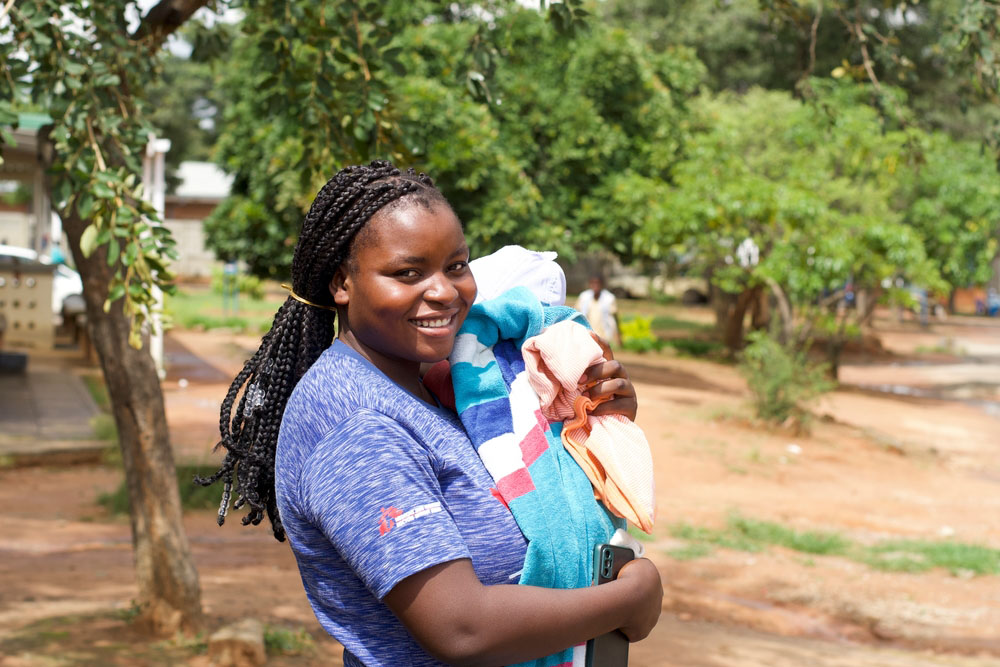
Information and empowerment
There are still speed bumps ahead for many pregnant girls and young mothers in Mbare. While the Zimbabwe government reversed a law in August 2020 which had banned pregnant students from attending school, the stigma affecting these students is harder to budge—meaning that many still drop out of their classes.
While several of the club’s young mums are returning to learning, MSF plans to work with other organisations to further support their reintegration into school.
“When we go to school, we’re given time to grow physically and mentally, and our minds open,” says Relative. “So for a girl… she is empowered. She’s in a position to take charge of her body, to make decisions on issues that affect it.”
For the 124 adolescents that have been enrolled, the Teen Mums’ Club is providing the foundation for the girls to regain agency over their health and the health of their babies and to make choices that work for them.
It’s a feeling Marvellous says she’s gained from finding the club.
